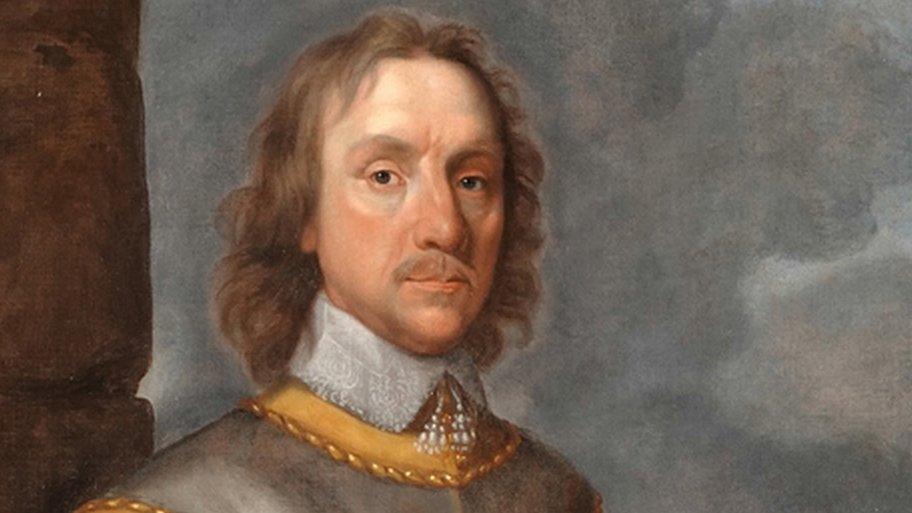Cambridgeshire event aims to shine spotlight on Oliver Cromwell's wife
- Published
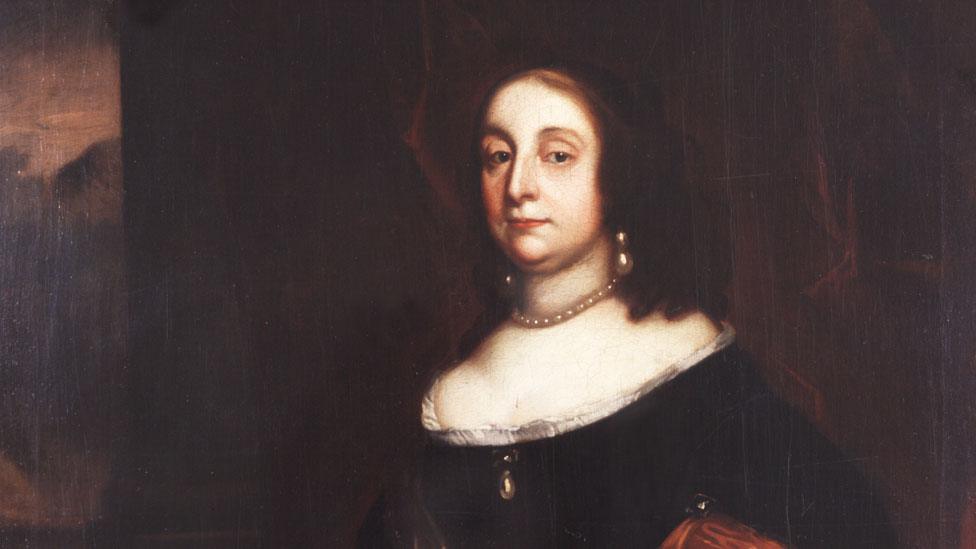
Elizabeth Cromwell rose from obscurity to become Lady Protectoress during England's only republic
Civil War re-enactors will parade through a village during a two-day event to shine a spotlight on the life of Elizabeth Cromwell.
The wife of Parliamentarian leader Oliver Cromwell rose to prominence when he became Lord Protector, but returned to obscurity after his 1658 death.
Organiser Clare Strak said the plan was to "put Elizabeth Cromwell firmly back on the map" in her burial place.
It will raise funds for St Andrew's Church, Northborough, Cambridgeshire.

She had a long and happy marriage to Oliver Cromwell
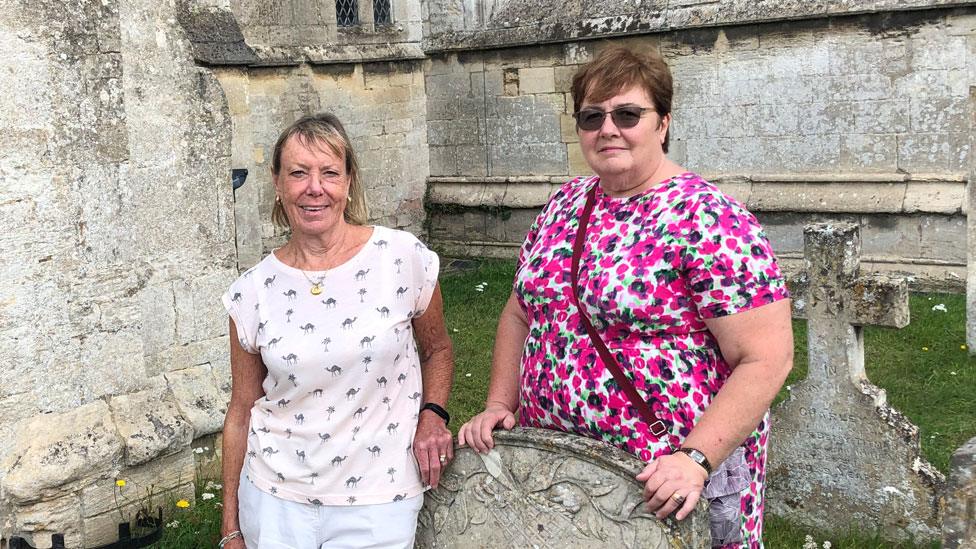
Organisers Clare Strak (left) and Teresa Scott (right) hope the weekend of Civil War-themed events will shine a spotlight on Elizabeth's life
She was buried in the church's Claypole Chapel after her death at her widowed son-in-law Sir John Claypole's home, Northborough Manor.
He had been married to the Cromwells' favourite daughter, also named Elizabeth but known as Bettie, who died in 1658, a few weeks before her father.
Ms Strak, chair of the church's fundraising team, said with the restoration of Charles II imminent, Elizabeth "high-tailed" it to Northborough "to do what grandmothers do, which is look after the kids".
"It is wonderful to know that we've got this connection and it's such a shame that Elizabeth Cromwell hasn't been recognised," she said.

Her grave has worn smooth over the centuries and the events are a fundraiser for the Grade I-listed church
Unlike her husband, who left behind more writings and speeches than any other non-royal person before the Victorian period, Elizabeth left little in the way of paperwork.
Born Elizabeth Bourchier, she married Oliver in what was probably an arranged marriage in 1620.
"It was a very happy and devoted relationship. They had nine children and six remained healthy and lived long lives," said Stuart Orme, curator of the Cromwell Museum, Huntingdon.
"Oliver wrote to her when on campaign in 1650 saying, 'Thou are dearer to me than any creature', and she replied, 'My life was but half a life in your absence' - and that was after 30 years' marriage."
Together they weathered financial hardship, Oliver's depression, his conversion to "a born-again Puritan" and their return to financial stability after inheriting an Ely estate.
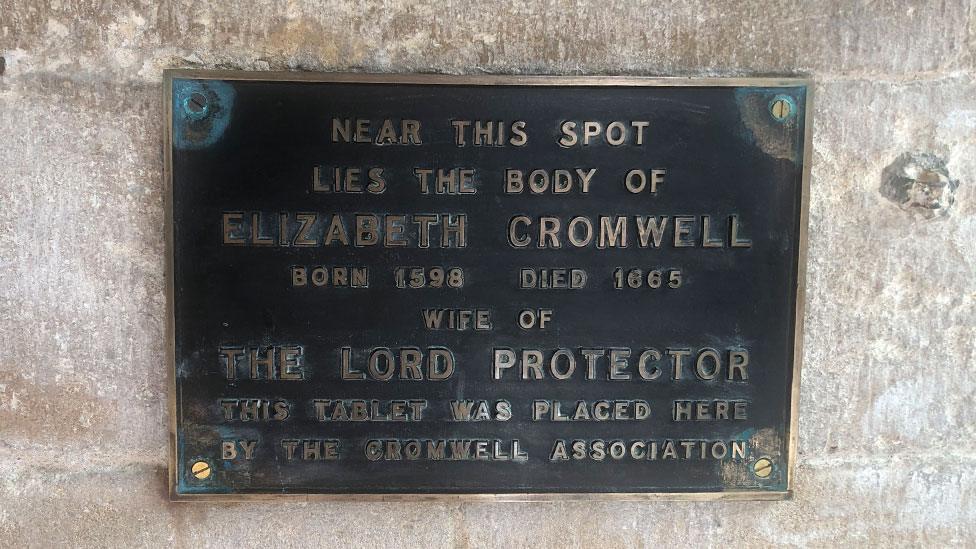
Elizabeth Cromwell moved to Northborough after a coup against her son Richard and lived with the widowed husband of her favourite daughter, Bettie
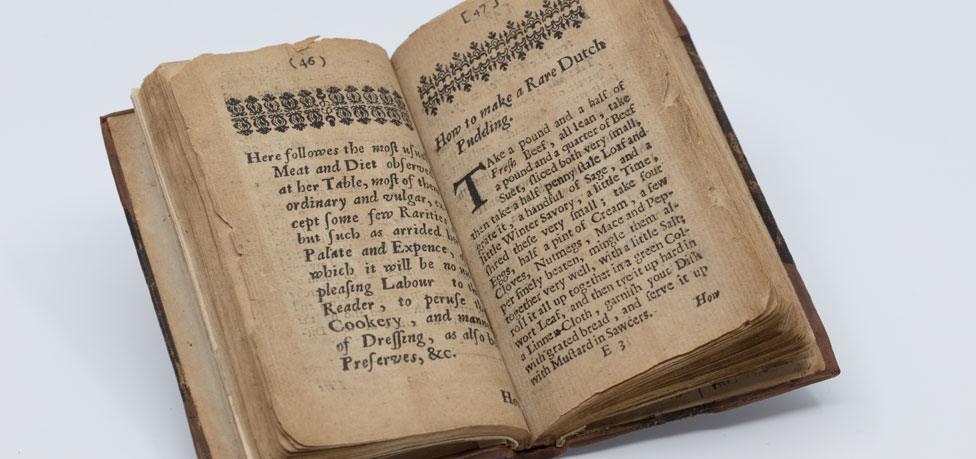
Her last years were marred by a series of tragedies and the publication of a propaganda book that painted her as "sexually immoral, [a] poor housewife and grasping"
Mr Orme said: "When he becomes Lord Protector, she is the supportive wife in the background, and also hosts foreign dignitaries at court. There is no evidence to back Royalist claims she was a Lady Macbeth character.
"From 1658, she goes through a series of shocks - the deaths of husband and daughter, the coup against her son Richard and then her husband's body was exhumed in 1660 and used in an appalling fashion."
A further humiliation must have been the publication in the early 1660s of the Restoration propaganda Mrs Cromwell's Cookbook.
It painted her as "sexually immoral, [a] poor housewife and grasping - all techniques used still today by certain sectors of the media to bring down high-profile women", he added.
Mr Orme will be giving a talk about the book during the weekend's events.
Ms Strak said: "We're immensely proud of our connection to Elizabeth Cromwell and we really do want to remember it."

Follow East of England news on Facebook, external, Instagram, external and X, external. Got a story? Email eastofenglandnews@bbc.co.uk, external or WhatsApp us on 0800 169 1830
Related topics
- Published20 May 2023
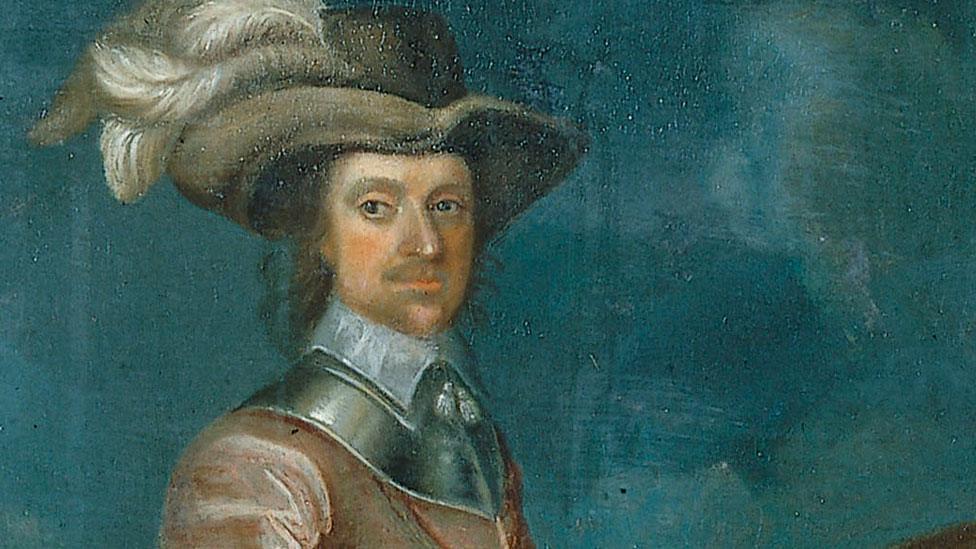
- Published24 October 2022
